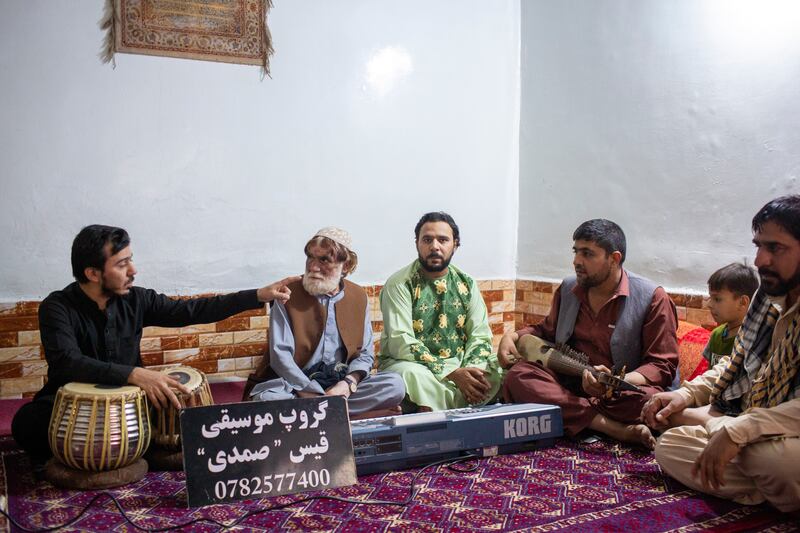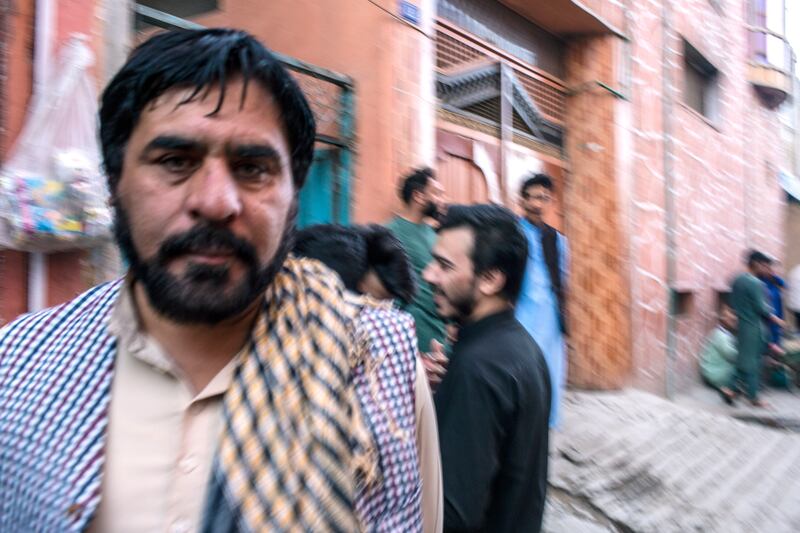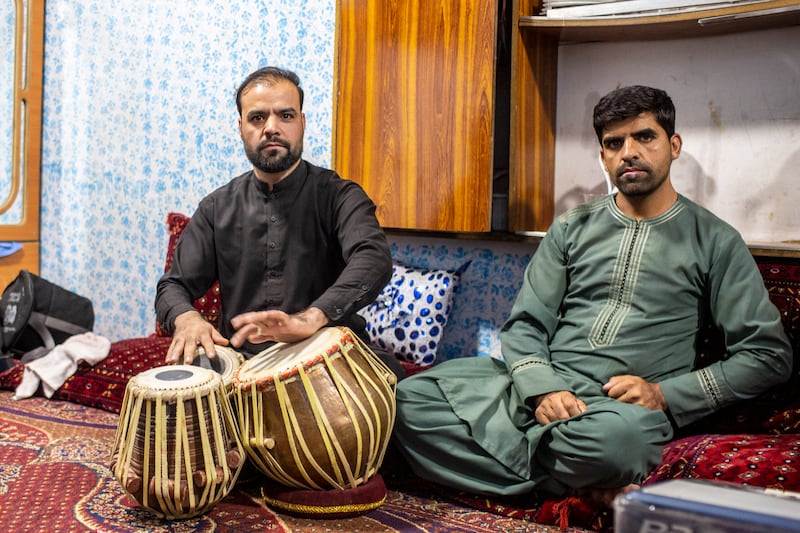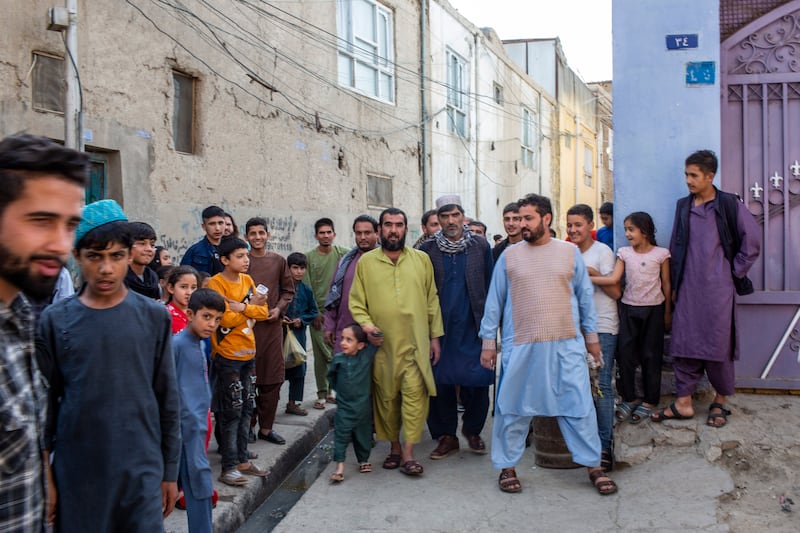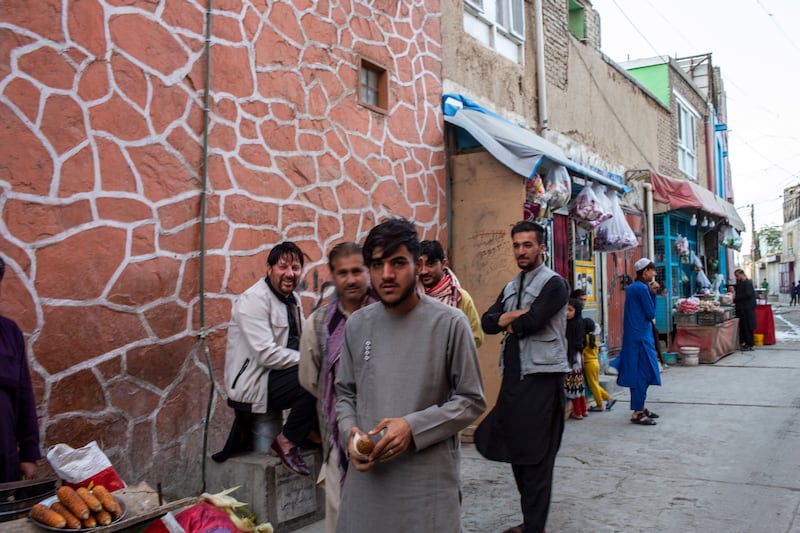When the Taliban seized control of Kabul in August, Ashraf Omary decided to hide his beloved drums.
Like many urban Afghans, he was surprised by the fall of the capital. After the Taliban swept across Afghanistan, musicians feared their art would be banned completely, as it was when the group ran the country between 1996 and 2001.
“If I had expected it, I would have tried to leave the country quickly,“ said Omary, 33.
“Most of the musicians here on my street are hiding their musical instruments because they’re scared, especially since musical parties are completely banned by the Taliban. We’re jobless now.”
Married and with three children to provide for, Omary is now looking for any work he can find.
“But music is my life,” he said. “I want to do what I’m trained to do.”
He is a part of a community of Afghan musicians who live on Kharabat Street, a small winding road in the old part of Kabul that has been the heart of the city's music scene for more than a century.
Musicians and singers, some spanning generations, live on the street and used to take bookings to play at weddings and other events.
Although music has not officially been outlawed in Afghanistan, Taliban spokesman Zabiullah Mujahid has said performing live music is forbidden in Islam.
Weddings, once a vital source of income for musicians such as Omary, have largely been held without live music in recent months.
Instead, DJs play songs at a low volume to avoid attracting the attention of the Taliban's morality police.
"We’re all hiding our instruments now,” Omary said. “But when we feel suffocated, we take them out and try to console our hearts by playing. Now we play music softly at our homes for ourselves."
A community falls silent
He is surrounded by fellow musicians on Kharabat Street. His brother, Heshmat, is also a drummer, while his best friend Rafi is a singer who can play the keyboard and harmonium.
Parwiz, another friend who lives nearby, is a singer and keyboard player.
“We play different kinds of Afghan music: Pashto, Hazari, Farsi, Kandahari and Logari. We also mix different kinds of music together,” he said.
Afghan musicians have also hidden photographs of the parties and gigs they performed at over the years.
Among his collection, Omary has a picture of himself with Aryana Sayeed, one of Afghanistan’s most famous singers. She fled Kabul soon after the Taliban captured the city in August.
Sayeed appeared as a judge on Afghanistan's version of TV show The Voice of Afghanistan, a US-sponsored singing competition.
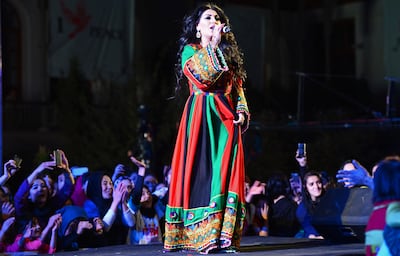
Omary is one of many musicians unable to work since the Taliban takeover.
“If you walked down this street any time before the Taliban took over, you would always hear music – someone training singers, someone practising on his keyboard, or people listening to recordings and preparing for a live show. Now it’s just calm,” one musician said.
Others gathered to chat while their children played.
“We don’t have any income now,“ said Rasool Khaliqi, a drummer.
“We took down our placards and hid them with our musical instruments in the basement,” he said, referring to signs advertising the musicians' services that used to adorn the street.
”This has been our job and our grandfathers’ jobs. The place to go and hire musicians was Kharabat Street but now we are all shopkeepers.”
Kabul's 'music street'
The history of music on the street stretches back to the mid-19th century, when Afghan rulers invited musicians from India to play for the royal court. The musicians who stayed passed on their skills to the next generation.
But during the civil war of the 1990s, Kharabat Street became part of the front lines of a conflict between rival factions in Kabul. Much of the district was badly damaged by fighters who fired down on the city from the nearby mountains.
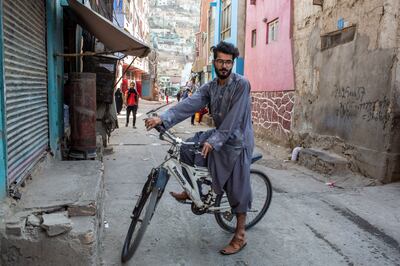
Near the top of the street, Mohamed Mahfouz, 54, lives in a rented house with his wife and three young sons.
They are all trained musicians, he said, with his sons able to play the keyboard, harmonium and rabab – one of Afghanistan's national instruments.
“I’ve been a singer and a musician for 30 years, my teacher was Altaf Hussain," he said, referring to a renowned Afghan musician who now lives in the US.
"I attended and sang at many parties. I’ve composed around 150 songs. But now, since the Taliban took over, I’ve been jobless. So are my sons.”
Mahfouz was born on Kharabat Street. He has an old passport that contains a wide variety visas and stamps that show the countries where he performed in happier times.
When the Taliban first took over Afghanistan in 1996 and imposed a ban on music, Mahfouz moved his family to Pakistan.
“I stayed there for five years while the Taliban were in power, then I returned. Now my passport is expired and we don’t have enough money to travel. We’re selling our possessions and furniture,“ he said.
His son Rafiullah said the Taliban takeover was the latest in a series of calamities for him. He injured his hand in an accident, leaving him unable to play the keyboard, and he cannot afford treatment at hospital.
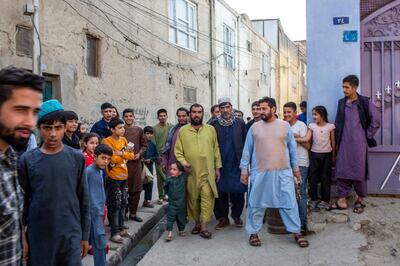
“It has been a disastrous year already. We were not playing at events as regularly as we were since before the first Covid lockdown. Then during Ramadan it is normally quiet," he said.
"Then the winter came, then the second Covid lockdown, then the Taliban took over."
He wants to go to Iran for treatment now that flights have resumed, he said.
“I’m not sure which country can be good for me, but at least I can try to go to Iran to treat my hand and then go elsewhere. I want to find a job in music," he said.
Mahfouz’s wife, Aziza, said she was forced to sell her sewing machine and pressure cooker.
“I was trying to make food and juices to sell in the street, but it didn’t work out. I think our only chance to have a good life is to leave the country," she said.
Mahfouz said some older musicians visited Mr Mujahid to implore the Taliban to soften their policy on music.
UK offers ‘bright future’ for Afghan evacuee who fled the Taliban
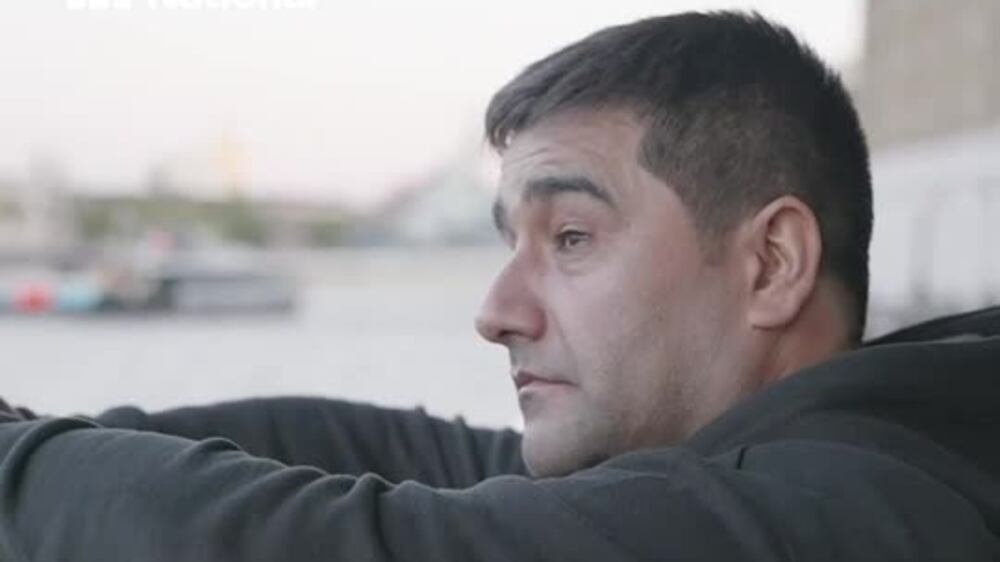
“There was a group of 13 elderly musicians who went as representatives of the street,” he said.
“The spokesman said that music in these kinds of parties is completely banned, but we were promised that these talks would resume.”
All across Afghanistan, musicians are falling silent as they struggle to adapt to life under Taliban rule.
A part-time teacher at the Afghanistan National Institute of Music, which at its peak had more than 300 students enrolled in its programmes, said it was forced to close.
Musicians must now seek new ways to make money. Mohamed Ibrahim, 60, sells snacks from a kiosk on the street.
“I was in the music business for 50 years. I have fixed and repaired harmoniums since I was 10 years old,” he said.
“Since my family began living on this street, living conditions have worsened. The musicians are now forgotten. Their economic conditions are very bad. Many people can’t afford to rent their own homes. It’s awful.”
